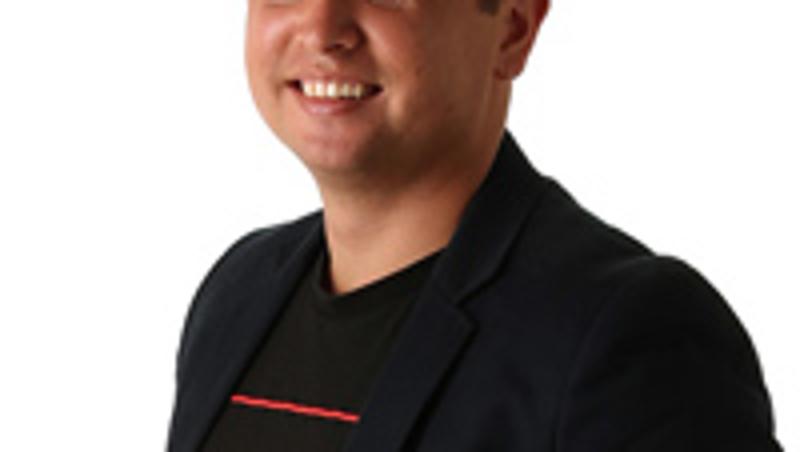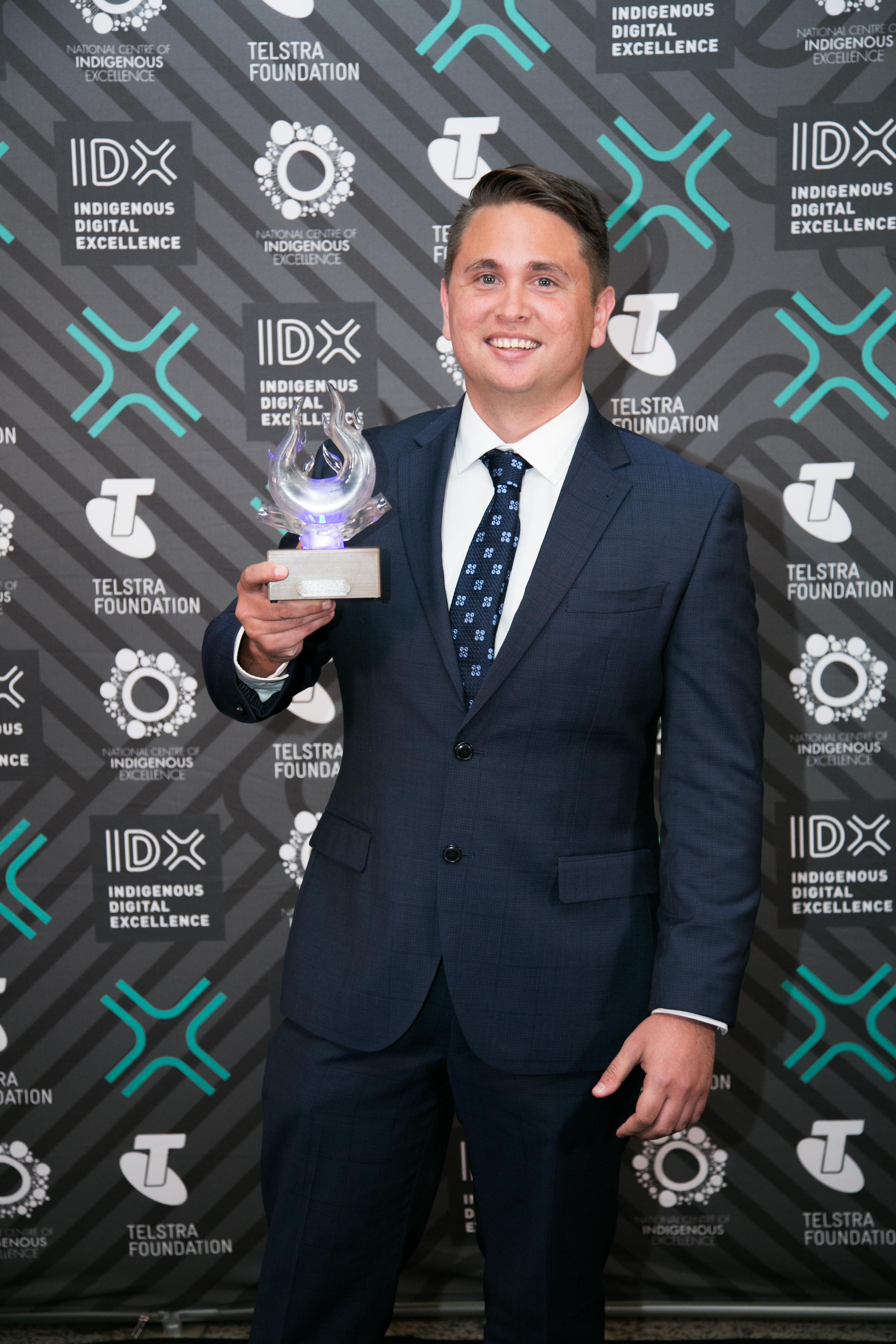
When QUT Master of Business student Dean Foley left his first career in the Royal Australian Air Force after five years, it was to embark on a second one inspired by Richard Branson and Robert Kiyosaki.
Armed with his favourite books on entrepreneurs who had changed the world, he wanted to learn what it took to run and grow a business.
But the proud Kamilaroi man who grew up in Gunnedah says he faced an uphill battle getting any real support from organisations that were supposed to help Indigenous entrepreneurs.
So, instead, he founded Australia’s first Indigenous business accelerator, Barayamal, with a focus  on helping Indigenous startups and schoolchildren become the nation’s new ‘Indigipreneurs’.
on helping Indigenous startups and schoolchildren become the nation’s new ‘Indigipreneurs’.
Key points:
- Barayamal is Australia’s first business accelerator run by Indigenous people for Indigenous people
- First projects include an Indigenous hackathon, eMentoring site, Indigipreneur podcast, local coding classes for schoolchildren and a CoderDojo First Nations coding club for kids
- Founder and QUT Master of Business student Dean Foley named entrepreneurship winner at 2017 National Indigenous Digital Excellence Awards
- Registered charity based at Gardens Point, Brisbane, with plans to grow nationally
Barayamal was a natural progression of two events run by Mr Foley last year – Australia’s First Indigenous Startup Weekend in August and a four-week “mini” accelerator in November that involved five Indigenous start-ups.
This year he has focused on building platforms and partnerships, including the Indigipreneur podcast and an eMentoring site, and running a national hackathon that challenged teams to come up with tech-based solutions to increase the social impact of four Indigenous charities.
This month, Mr Foley was named winner of the inaugural National Indigenous Digital Excellence Awards’ entrepreneurship award.
“I wasn’t a good academic at school and thought I wasn’t smart enough to go to university so I joined the RAAF to serve in the Australian Defence Force like my grandfather (who fought in World War II and was one of the Rats of Tobruk),” Mr Foley said.
“While I was in the RAAF a friend gave me a copy of Rich Dad Poor Dad by Robert Kiyosaki. I came from a poor family and it really opened my eyes – it was kind of a light bulb moment.
“From there, I looked at Richard Branson and other successful entrepreneurs. All I wanted to do at first was buy an existing business and grow it, but I wasn’t able to get the support I needed. So Barayamal was born out of frustration.”
Mr Foley is setting his sights on some of Australia’s youngest would-be entrepreneurs, with the organisation’s first classes and courses this year teaching coding to Indigenous school children.
“We’ve got a massive youth population – the median age of an Indigenous person in Australia at the moment is 23, compared to 38 for non-Indigenous, and employment is at 21 per cent,” Mr Foley said.
“What we’re trying to do with these coding clubs is to empower them with the digital skills these kids will need in the near future to connect them up with jobs,” he said.
Mr Foley has secured Microsoft sponsorship for some of his events and was appointed to the Microsoft RAP Advisory Board in September to provide insights to help Microsoft achieve its Reconciliation Action Plan objectives in Australia.
He also hopes to obtain government support to enable the first startups to move into the accelerator next year and take advantage of its education and training workshops, mentoring, early seed capital, working desk space and demo days.
Mr Foley said name Barayamal was symbolic and meant ‘Black Swan’ in the Kamilaroi language.
“Black swans were first seen by Europeans in 1697 – before that, they had only ever known of a white swan,” he said.
“We use the black swan to represent Indigenous entrepreneurs who have not been noticed for their innovative businesses. Barayamal plans to show the world that Indigenous entrepreneurs exist and they can also build global businesses.”
Mr Foley is studying a Master of Business (Marketing) with the QUT Business School, which he is due to complete in 2018.
Release date: Tuesday, October 17, 2017
Media contacts:
- Mechelle McMahon, QUT media officer, media@qut.edu.au
- Rose Trapnell, QUT media team leader, 0407 585 901


